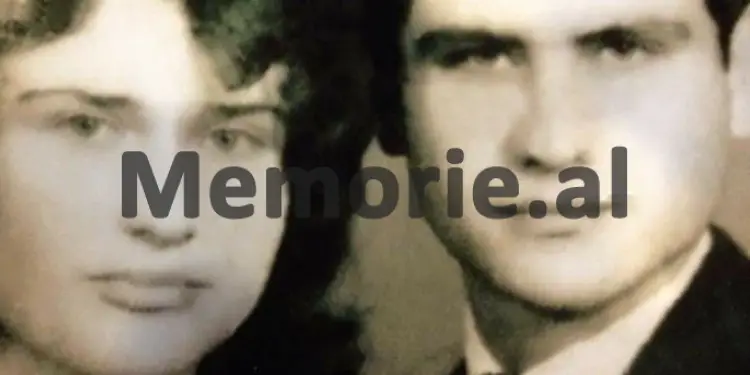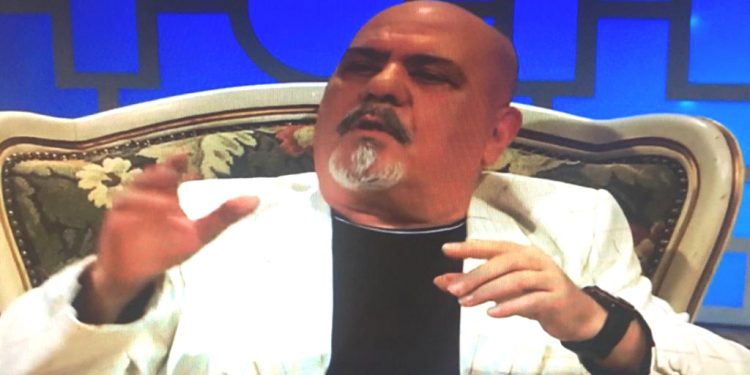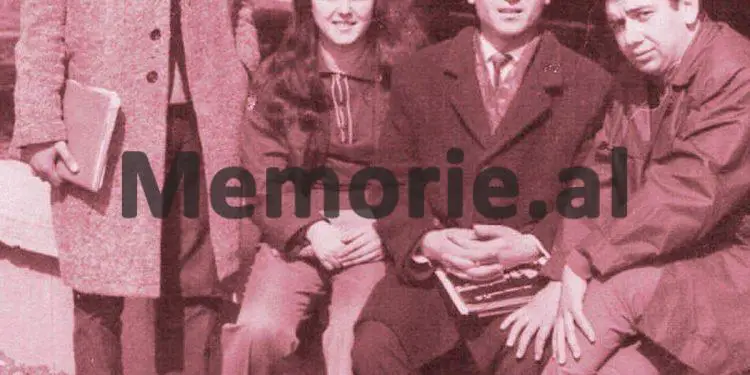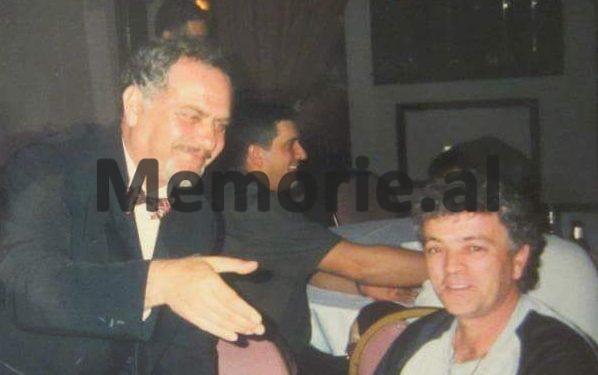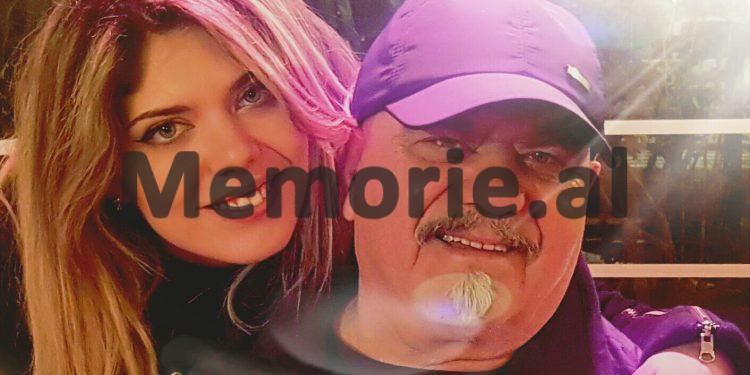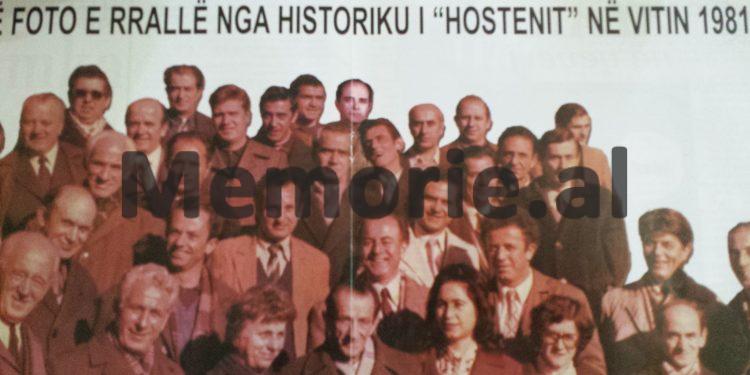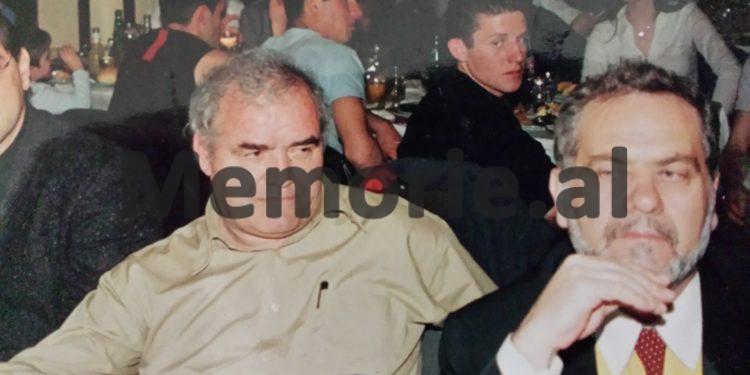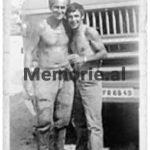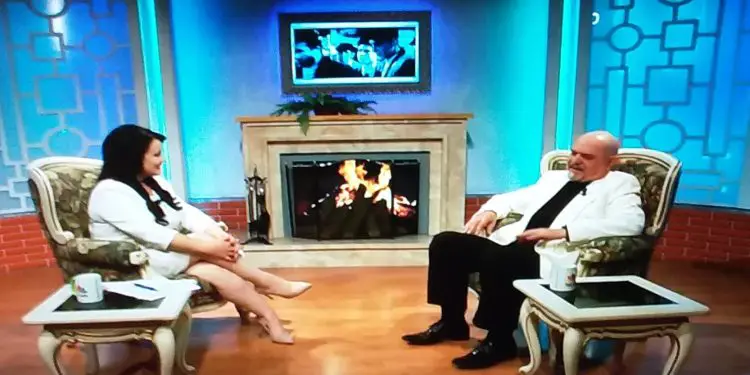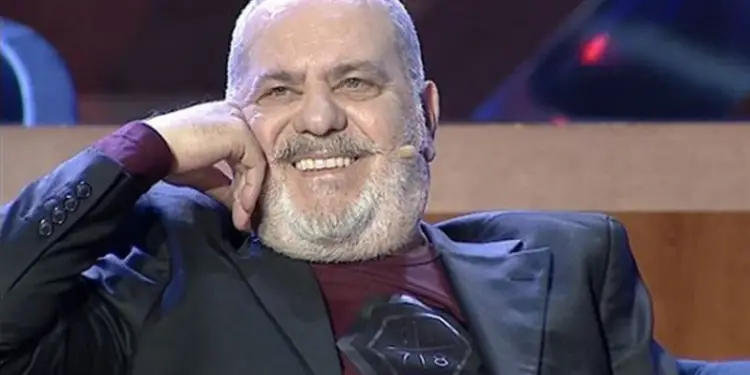Dashnor Kaloçi
The third part
Memorie.al publishes an interview given in the show “RRËFIM” on TV Scan some time ago, by the great Albanian painter, cartoonist, screenwriter, actor and director of humor, Koço Devole, who passed away a few days ago, i who for 90 minutes, has told some of the unknown events and stories of his life, family and artistic career, starting from the origin of the family, the specialization of his father, Thanas, in Italy for cinematographer, work in that profession in the town of Kuçova, where Koço was born, coming to Tirana as a cinematographer at the “17 Nëntori” Cinema, leaving and being sent to Kombinat with a sentence as a worker, after it was discovered that he had arranged a direct telephone line for Tuk Jakova and Bedri Spahiu, who were declared “enemies of the people”, Koço’s participation in the film rehearsals for a role in the film “Debate”, where he “did not win”, and an extra in “The First Years”, etc.
Koço’s passion and tendencies for painting, where he studied with the Russian engineer at the “Stalin” Textile Factory in Tirana, as well as with the theater district at the Pioneers’ Palace, where the Russian director entrusted him with several roles, the first cartoon he published in ‘Hosteni’ in 1964, roles in some dramas in the Culture Club in Kombinat, competition for the Art High School and biographical obstacles for ‘runaway uncle’, the right to study in Mechanical Engineering in Tirana where he stayed only two years, ‘for the sake of’ of the Indonesian friend who made the portrait and was ‘rewarded’ with coffee, lunches and dinners at the ‘Volga’, going to the Soldier and engaging in the Soldier’s Variety with his childhood friend, Roland Trebicka, after the intervention of the director, Viktor Gjoka, giving performances until at the farthest border points, etc.
The release of Koço from the Army and the work in the Culture Club in Kombinat, where he made a big name, after painting Enver Hoxha on a giant facade, the engagement in the magazine ‘Hosteni’ as a cartoonist and with scenarios for sketches and parodies, the appointment in the State Variety and then in the Albanian Radio-Television, work and projects after the ’90s with films, comedies, spectacles, etc., cooperation and work with a close friend of life, Filip Çakuli, until his prophecy said in this the show, where he, among other things, said: “… They do not ask at all if a great artist passed away, it is unfortunate! They refuse to escort them to the last apartment from the Theater, e.g. There have been many cases. The last case was Hajrie Rondo who with a hundred prayers, helped her a little. When they die yes, ironically, to do the greatest honor. I know that when I die, they will honor me, and they will say the usual things they said to others … “
“Before the ’90s, artists were praised, that the Party, did propaganda and called us’ its helpers’. That’s why he paid us. But this has nothing to do with the dictatorial system. We were respected by the party secretaries, and everyone else. But that does not mean that system has been good. Absolutely, it has been dictatorial.
This is what the painter, cartoonist, screenwriter, actor and great director of Albanian humor once said in a long interview for the show “RREFIM” on TV Scan, (authored by Dashnor Kaloçi and moderated by Albana Shehu Qirjako). , Koço Devole, who passed away on November 8 and unfortunately, his prophecy “was fulfilled point by point”, as if the great Devole, “had left him with a trust”, after he was escorted to the last apartment from a private funeral home ?!
In homage to one of the greatest icons of Albanian humor, Memorie.al, has uncovered and brings exclusively to readers, the rare testimonies of the ‘Grand Master’, Koço Devole, in several issues.
Continued from the previous issue
Mr. Devole, then, in a way, the director Spahivogli, was based on the work of Aristophanes?
Yes, that this is Aristophanes’ “Lysistrada”, that is, 400 years before the New Age that Aristophanes said. And the comedy was brilliant. Where it was in the quotes “Whores of the Combine”, i.e., are not. And it became famous, without anyone reading it, meetings, letters, newspaper articles started and it became famous.
Was there anyone who tried to protect Spahivogli?
The director of the Kombinat Culture Club, Osman Laze, for example, was a bit liberal, saying: “Let’s remove that title (ie” Kombinat Whores “) but let’s leave the comedy because it is very beautiful. Let’s do it “Kombinat Girls”. “But it does not make sense,” I told him, because I was defending myself, the essence of the work. But that comedy, was never staged, at that time, pity, very pity! And later then, when it was staged, even now the last one, is that of Spiro Duni, called “Women’s Power”. But Spiro may be the 50th, in the whole world, because this has been staged by others. But the first to write it here was Kujtim Spahivogli.
Are we seeing a picture on the screen that the director has taken of us now?
Yes, in this photo is Kujtim, with Vlasova Musta. This is a photo from the wedding day, but to be honest I was not at their wedding.
Memory, expressive in what his eyes show?
Especially when he performed “Hamlet”, he was very good, and was applauded diligently by the audience. The memory had “Hamlet”, fantastic, fantastic.
What do you remember from Spahivogli, I believe you also had human aspects?
He did not want us to go to him when he was sentenced. He often told us when we went to Fier to see him. “What are you coming for”, he was telling us?! “They will see you,” he told us. “If we are not doing anything, professor,” we would say, “we are just meeting you.” And when he came to Bërzhitë, after he finished his sentence, I was at the Albanian Radio Television at that time and I helped him with everything he needed. I went to the director of the Television, and told him that: for Bërzhita, where Kujtim Spahivogli is, I want everything, from the spotlights, the decorations, and everything that the television had. I also wrote him a sketch about the house of culture in Bërzhitë, where he was. But every day more and more, he was also getting physically digested. She was wearing an old overcoat. We whispered to them then, and they were like cigarette butts, tearing quickly. He even glued the torn parts. And once a friend of his who saw him smoking said to him: “O Kujtim, do not stay in the sun because your stamps will fall and the glue will fall on you”. This remained in the nuances of the tragicomic for him. And so, he fled, wasted and unappreciated. He even addressed me once, saying, “I am leaving now, do not come to me anymore,” he would tell me. And we left, but Ferdinand Radi, was constantly going. Very good memories, but it was not a good ending, the way he ran away and was abandoned! Not rated! But let every man bear his sins on his shoulders. Before the artists were estimated that the Party, did propaganda and called us its helpers. That’s why he paid us. But this has nothing to do with the dictatorial system. We were respected by the party secretaries, and everyone else. But that does not mean that system has been good. Absolutely, it has been dictatorial. But now it gets worse, not asking at all if he ran away from life, any great artist, is unfortunate. They do not accept to be escorted to the last apartment, since the theater e.g. there have been many cases. The last case was Hajrie Rondo, who with a hundred prayers helped her a little. When they die yes, ironically, to do the greatest honor. I know that when I die, they will honor me, and they will say the usual things they have said to others.
Thankfully you are very well?
Hahaha no mo, no, with these minds I have, as if it were written, as fate is not played.
However, remember the years when you worked at Kombinat?
I pretty much edited the biography there, because the shows started there and from here, from the Combine, I was catapulted further to the Albanian Television.
What about RTSH, how did you feel afterwards?
Of course, there was then another environment. But my job was, editor of art programs on Fridays and Saturdays. For the comedies and variety shows that were given every Saturday. But even their other problems started, as everything passed for control to the Central Committee of the ALP. In the editorial office where I worked, the instructors of the Central Committee came to me and said: “What is this page, this one, this other one”?! For the performance of Korça, for example, it was seen and approved by the First Secretary of the District Party Committee, and I told those instructors: “He who has seen and liked this show, is a better man than me “. But there were also shows that they even laughed at, but said that these or those, do not stage them. Because in that sketch, for example, the figures of the first director or secretary were violated. They did not want to touch these figures, and we made sketches for the bills and the barber.
But has there been intensive work there on ART?
Yes, it has absolutely been more tedious. But the most difficult was the New Year program, which started almost four months ago. We had to go all over Albania and select the sketches. Marash Hajati, who has been the director of RTSH, shared my tasks with me, who was a screenwriter. This job, so to speak, created a kind of closeness to me and with him. And for a sketch that he did not like, I said to him: ‘Well, comrade Marash, you do not like it, but the people like it’! “But the fact that I do not like this sketch,” he told me, “is not a little, so remove this.” In concerts, they attached great importance to the opening texts. Where they said “our Albanian hearths” etc., so that these titles were put to grieve. Around 1981 or; 82 he says to me: “Listen, what are we going to do about the text, have you thought of anything”? We were going to Gjirokastra and I told Marash to start a little differently this time, and not with bombastic texts. I tell him that in the sketch, we enter a room and see two people, who seem to be playing under the sheets. “Do you think we should open the end-of-year concert,” he told me? ‘But in the meantime, at this moment, the door is knocking. And one that is under the sheet, cometh down, and cometh down into the bed, and on the bed cometh forth a little girl. The door opens and the officer enters, I tell him.
What did Marashi tell you, did you like it?
Marashi liked it and said to me: “Yes, what happens next”? “This one,” I told him, “goes to the bedroom, to the bed, and opens the nightstand to draw his pistol. But when the officer tries the pistol, the one under the bed escapes the urine. Then it comes out, on the floor and here the sketch closes. “What is her message?” Director Marashi asked me. “Yes,” I told him, “that workers make poor quality, pedestrian floors.” They have to be done right. ‘ He laughed out loud. On Television, of course, we had a good time, where in the meantime, I also played but also moderated myself.
You have been on RTSH for many, many years, but you have not left without trying Estrada?
It was 1991, when after the changes took place, I went as the artistic director of the Tirana Variety, or the State Variety as it was known. The first part I put there was, “The Last Hunt”. We did it both as a show but also as a comedy, where it was very successful. Then we did the second part of it “Alive or Dead”.
Was the time when the State Estrada was still on foot with the good actors?
I served there for about four years. But after 1994, there was no investment. The hall was a scandal. When we performed, I humorously told them, ‘Get away from it because it leaks.’ And from this lack of investment, I walked away. But in the period that I have been, in those difficult conditions, four telecomedies have been made, which they do not say much about.
After leaving, did you go back to your old love, Television?
Yes, but it was there at the time, a bit of a mess and more or less the same situation! In the horrific years 1997-’98, guns were fired and bullets came from what you realized. I even told one of my neighbors not to shoot in the air with a gun because my little granddaughter was sleeping! He told me: “If you wanted to tell that neighbor in front, so that he would not shoot first, because he makes me angry. He has 12.7 bullets, yes, I do too! “Leave this nonsense,” he told me. “Koço, tomorrow is your wife’s birthday,” he told me, “so, here you have these weapons along with the ammunition.” It even occurred to him to tie them with a red ribbon as a gift, a machine gun and five bombs. I go up to the terrace and tell the other one to stop, so that he does not shoot anymore, and he says to me: “Here is how to run out of these ammunitions”, and I show him by hand three or four crates! I was shocked. At that time, we made some beautiful materials with Agron Llakaj and operator Pali Kuken, at “Albanian Telebingo”, which they liked very much. Because that time was horror and people were telling me, thank you for keeping our souls alive. But in 1998, I closed it and fled with my family to the US. I now come and go because I currently have my family there.
Did you make a telecomedy with Ceka from Berat, where you tried to go to Italy?
It was also titled “Holidays in Rome”. I even remember that that telecomedy was a sponsorship of one of the pyramid firms of that time.
I believe that in the minds of many Albanians, Sillo has remained?
In that TV movie, I did not enter Enver Hoxha at all, in terms of his portrayal as a dictator. I just said that he, was a movie, where Enver Hoxha in the end, kills all his friends. Then the details of the film, were transient. Even that moment with Uncle Brahon is purely artistic, where the leader sits knee to knee with the people. Ironically, I see this falsely in Albanian politicians even today.
Were there any sketches of that time that went beyond that comedy?
Likewise, there have always been sketches, but they have also been removed depending on the mood of the boss! Even the same party instructors who were at Estrada, came to check us on Television, and when they did not like a sketch, they told us: remove it.
Meanwhile, you have a long time working on an investigative show, do you feel good there?
But of course, now, these are also the last struggles. But age also makes its own. Of course, I do the work with so much pleasure, that I am with my colleague and friend, Filip Çakuli. That was the main reason I went to Fix Fare. I feel comfortable there, with the monitoring part. We try to catch up with the logical slips of the journalists and not with the trivial emotional ones. For example, in a news it was said that: President Meta met with the chairman of the Italian parliamentary group of Albania ‘. Come on find out now!
I do not know if you have passed on to children, or to granddaughters, the sense of humor that characterizes you?
Yes, I tried. Even the eldest granddaughter, Cindy, has her share of humor. She is studying law in Italy, and I pointed out that: ‘in life you have to be serious because in movies, judges and prosecutors are usually skinned’!
While working with Philip, do you have frequent humorous moments with each other?
Of course, with Philip we have dozens of humorous situations. I can say for him that: apart from humor, he also has his courage, which I equate with Qamil Buxheli, who since then, mocked the party slogans. Even in one case, in a pastry shop, the slogan “Proletarians of all countries, unite”, was written next to the other saying, “Clients, there is no wine”. But the glass was broken and the one who stuck it later put it wrong. And they came out: “Clients of all countries, unite, and there are no summer proletarians.” So did Philip, who with great courage, in the ’80s, said on a TV show: “Comrade Paul Miska, told us three things we did not know in our lives. The first: wheat is sown in the ground, the second wheat grows from the ground, and the third, from wheat becomes flour for bread. A major scandal ensued. The editor-in-chief was sentenced to prison. Only Filip Çakuli could do that!
Have you had the good fortune to work with a large generation at Hosteni magazine?
Of course, even I just with the days of humor we did in Shkodra, I can tell endless stories. But a kind of jealousy, among the artists at that time also existed. However, everyone knew the place that belonged to him in his profession.
It is said that that generation of artists, where did you come from, were more solid?
Perhaps their close connection was made by time itself. There was a self-control, and self-censorship, so as not to degrade into banal words and situations. But the humor with banal words that is made today is little to discuss. However, we come to what art really precedes and should be pure. You cannot get soot and screen dirty, with these banal things!
What are your plans for the future?
Unfortunately, there are no sponsorships and money! I can no longer talk about humor plans in the future. I have scenarios that unfortunately are staying in my drawers. Because making a telefilm will pay well for the actors and staff. That is why comedies make them with a maximum of 5 actors, from the contraction of finances.
I, express my desire and that of many Albanians, to see Koço Devolen on stage once again?
Thank you, but as I pointed out, in addition to the mind and soul of the artist, he also wants a physical energy, which over time, seems to be fading! But for us, all the people have respect for what is true. We will be indebted to the end to the applause of the public. We try to knock hard on their hearts when we go on stage. But when we die, we are sure that they will say kind words. My last words are to the applause of the audience, they keep us alive.
Thank you so much for the interview and the emotions you created for us?
Thank you and I thank you./Memorie.al




